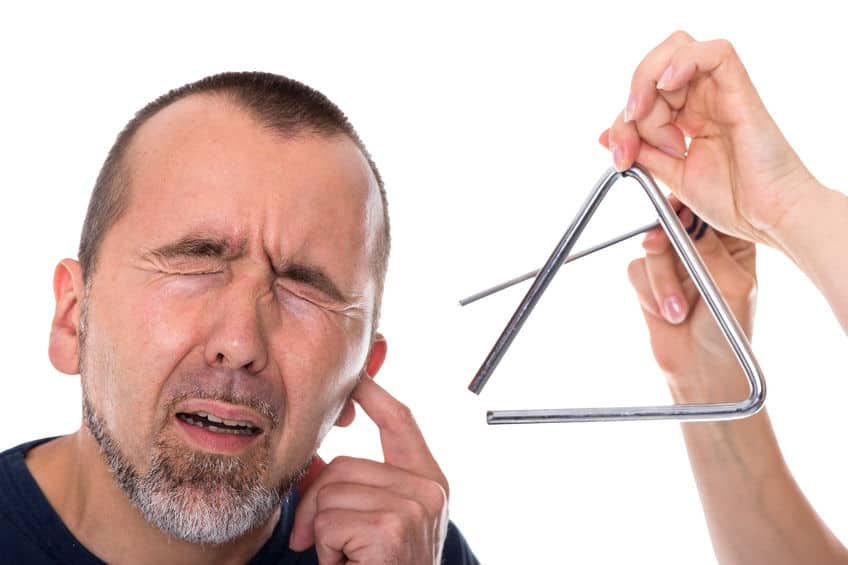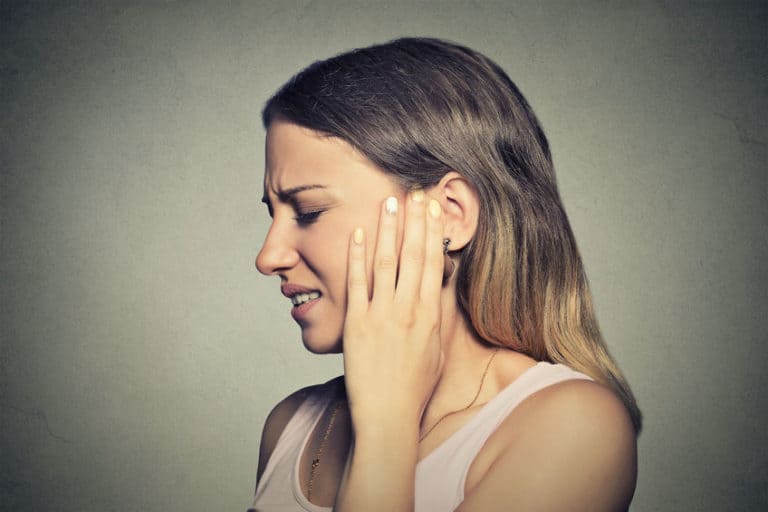
Despite the fact that over 50 million Americans are suffering with tinnitus, it is still vastly misunderstood. In fact, many people don’t even know that it exists.
Tinnitus is the perception of sound where there is no sound. For many who suffer with tinnitus, it is characterized by a persistent ringing sound, but it can often present as buzzing, hissing, whistling, or other sounds. Tinnitus can even cause anxiety, depression, and social isolation.
At its least, tinnitus is annoying. At its most severe, tinnitus can be downright debilitating. Knowing the facts about tinnitus can help ensure that those who suffer from it are able to manage their symptoms in the best possible way. Here are six common myths about tinnitus to stop believing.
Myth #1: I am not at risk for tinnitus because I don’t listen to music that is too loud.
Fact: Listening to dangerously loud music or being exposed to a loud environment for extended periods can certainly harm your hearing or result in tinnitus. However, that is not the only cause of tinnitus. Tinnitus can affect people of all ages, races, genders, and health statuses. Sometimes, there is no obvious reason for why someone has developed tinnitus.
Some common contributors to tinnitus include the following:
• Health conditions such as high blood pressure, circulatory problems, cardiovascular disease, allergies, underactive thyroid gland, and diabetes
• The natural aging process, which can cause deterioration of the cochlea or other parts of the ear
• Blockages of the ear due to a build-up of wax
• Smoking
• Prolonged exposure to loud noise, which can damage the sensory hair cells that transmit sound to the brain
• Existing hearing loss
• Excessive stress levels
Although we know which factors may lead to tinnitus, it is very difficult to say exactly what caused an individual’s tinnitus, and there is no one singular cause.
Myth #2: There are prescription pills to cure tinnitus.
Fact: Unfortunately, there is no magic pill to cure tinnitus. While much research has been done around the effects of medication and vitamin supplements on tinnitus, the research has shown no proven cure. However, there are ways to manage symptoms and make them less noticeable. For example, sound therapy, hearing aids, meditation, stress management, and changes to diet and exercise have all been shown to help lessen symptoms.
Myth #3: Hearing aids won’t help with tinnitus.
Fact: In many cases, an existing hearing loss can often result in the development of tinnitus. Augmenting the reception and perception of sounds through the use of a hearing aid may actually provide relief from the internal sounds of tinnitus.
Myth #4: Tinnitus is all in your head.
Fact: This is a common misconception, and perhaps one of the most harmful. Because tinnitus is an invisible illness, when you are suffering from it, no one knows. Rather, everyone just assumes you’re healthy. But under the surface, tinnitus is a devastating condition that can cause anxiety and panic. Luckily, there are ways that those who suffer from tinnitus can cope with their symptoms and lessen their impact.
Myth #5: There is nothing I can do about my tinnitus.
Fact: While there currently isn’t a cure for tinnitus, there are ways to lessen the symptoms. Because tinnitus is often a result of an existing hearing loss, hearing aids may help to block the internal ringing or buzzing sounds. In addition, advances have been made in sound therapies with great success. Many patients also notice that their general wellness can have an impact on the intensity of their tinnitus symptoms. Changes in diet, exercise, sleep patterns, and socialization have all been reported to lessen the symptoms of tinnitus.
Myth #6: My family doctor can’t help me with my tinnitus, so I just have to ignore it.
Fact: Many people go to their doctor with complaints about ringing or buzzing in their ears and are told there is little they can do about it. Doctors often mistakenly tell patients that they should try to ignore it, or it’s just a part of getting older. Unfortunately, tinnitus can be misunderstood even by doctors, and many patients feel helpless. However, the fact is that there is a LOT you can do to lessen the symptoms of tinnitus with the help of an audiologist.
Contact an Audiologist at Whisper Hearing Centers
No one should have to suffer alone through tinnitus simply because they don’t fully understand the disease. The audiologists at Whisper Hearing Centers help patients with tinnitus every day and we understand your concerns.
To schedule an appointment with an audiologist at Whisper Hearing Centers, connect with us on Facebook, submit this online contact form, or give us a call today at (317)865-2337.

